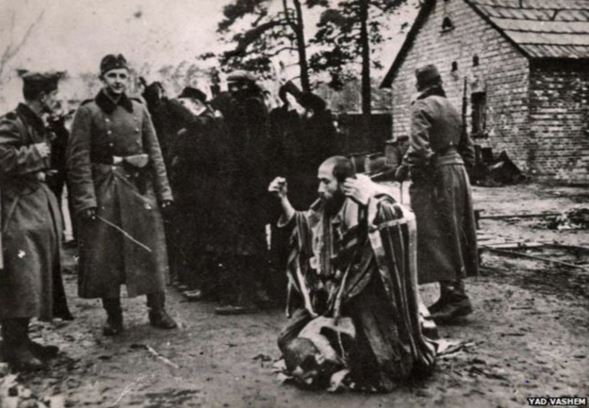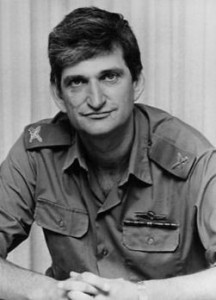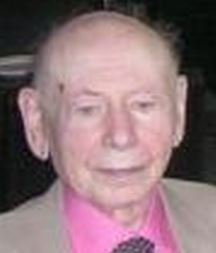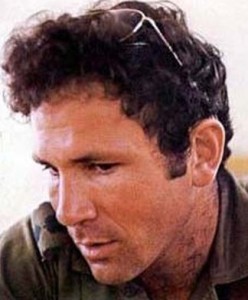Meir Huberman (1945-2016) was born on a train while his parents, Polish-Jewish Holocaust survivors, were fleeing to the Soviet Union. Five years later, they made aliyah to Israel and ultimately settled in Bat Yam, where Meir’s parents opened up a laundromat, and changed the family name to Dagan. Meir went on to study art at Tel Aviv University, and when conscripted to the IDF, joined the elite Paratroopers Brigade (which accepts just 1 in 5 applicants). A year following the completion of his mandatory service, he was called up to serve in the Six-Day War. As an officer, he commanded a paratrooper unit in the Sinai. Following the war, he stayed in the military and was soon tasked with leading a commando unit, Sayeret Rimon, operating undercover in the Palestinian territories. During one daring mission, Dagan tackled and disarmed a terrorist holding a live grenade, a feat that earned him a Medal of Courage. He was called to command a unit once more during the Yom Kippur War, successfully pushing across the Suez Canal. In 1982, the armored unit under his command was among the first to reach Beirut during the Lebanon War. Dagan retired from the military in 1995 with the top rank of Major General. Prime Minister Ariel Sharon appointed him as National Security Adviser, and then Director-General of the Mossad. Unlike former Mossad heads who were weary of doing so, Dagan was praised for his aggressive tactics in assassinating terrorist leaders (most famously Imad Mughniyeh, the terror chief of Hezbollah and Islamic Jihad). Dagan essentially tripled Mossad’s activities, and a Knesset member has said that under his watch, the Mossad “has undergone a revolution in terms of organization, intelligence, and operations”. Dagan continued to head Mossad until the end of 2010, when he crossed paths with Netanyahu over plans to strike Iran, which Dagan opposed, saying “Israel should not hasten to attack Iran, doing so only when the sword is upon its neck.” (Instead, Dagan had sent countless cyberattacks to cripple Iran’s nuclear program, together with car bombs to assassinate its engineers.) After stepping down, Dagan became director of Israel’s Port Authority, as well as chairman of Gulliver Energy, an Israeli mining company. Unfortunately, he was diagnosed with liver cancer. After chemotherapy failed, he received a liver transplant, but this, too, didn’t remove the cancer completely. Sadly, Dagan passed away last week. He was eulogized by President Rivlin as “one of the greatest of the brave, creative and devout warriors that the Jewish people ever had. His devotion to the State of Israel was absolute.”
Words of the Week
The issue of Iran armed with a nuclear capability is not an Israeli problem; it’s an international problem.
– Meir Dagan

This is a photograph of Meir Dagan’s grandfather right before being murdered by Nazis. The photo hung in Dagan’s office as a constant reminder of his important work.




